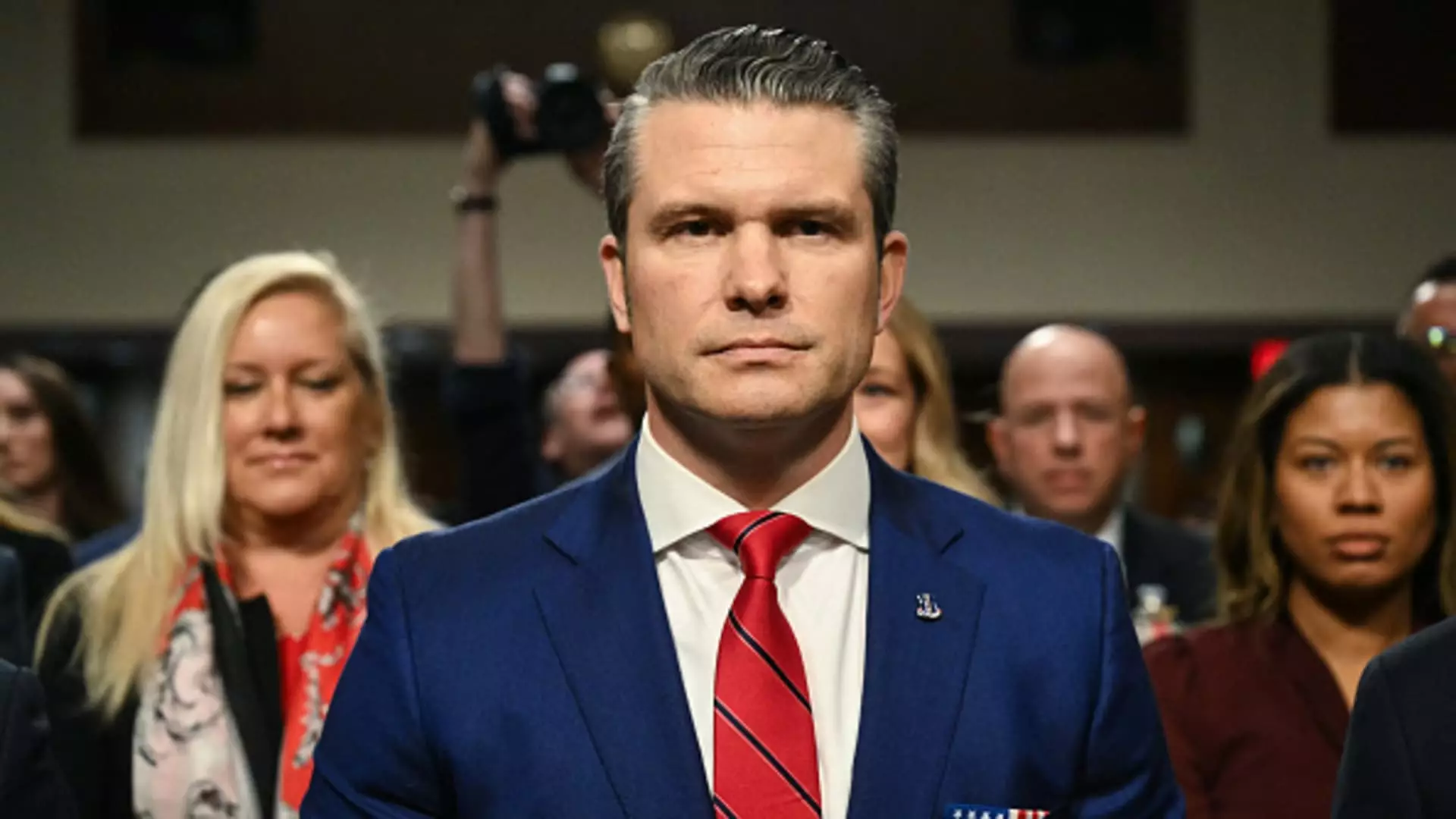The nomination of Pete Hegseth for the position of Defense Secretary has become a flashpoint in the already contentious politics of the current U.S Congress. With allegations of misconduct surfacing, along with a palpable divide within the Republican Party, the confirmation process serves as a revealing snapshot of the broader political landscape under President Donald Trump.
Background on Pete Hegseth
A former combat veteran and Fox News host, Hegseth’s nomination is not just reflective of his military background but also of a new wave of political figures who have emerged from the media landscape. His reputation was ostensibly built on a promise to instill a “warrior culture” within the Pentagon—a theme that resonates with many in the military and conservative circles. However, his time on Fox News provided a considerably different vantage point for some; it was marked by provocative comments and partisan rhetoric aimed at polarizing contemporary military discourse.
This nomination threw Hegseth into a dual role—both as a representative of military might and as a political figure capable of igniting serious cultural and ethical conversations. While his supporters, including key Senate figures, portray him as a necessity for a focused military strategy, skeptics point to substantial accusations against him as evidence that he may not fit the role appropriately.
The difficulties surrounding Hegseth’s nomination lie heavily in the allegations against him, including accusations of aggressive behavior toward women and instances of excessive drinking. Perhaps most striking is the claim of sexual assault at a Republican conference, which he and others have disputed, framing it as a personal attack on his character. This raises concerns not just about Hegseth himself, but also about the optics of his confirmation.
Senators within his own party, like Lisa Murkowski and Susan Collins, have expressed reservations about moving forward with the vote. Their dissent underscores a worry about how Hegseth’s confirmation might be perceived both nationally and globally, particularly in regard to single-serving military personnel and women in the armed forces. Collins specifically stated that after her conversations with Hegseth, she remains unconvinced that he has changed his antiquated views about women in combat roles.
The political stakes are immense. For Republicans, confirming Hegseth serves as a demonstration of unity amidst what appears to be a splintering party. Senate Majority Leader John Thune’s affirmations of Hegseth were accompanied by a passionate rejection of “woke distractions,” indicating an ongoing struggle against perceptions of a militaristic approach that embraces diversity initiatives. The Gates individuals must contend with how a vote in favor of Hegseth aligns with their broader strategic goals, presenting a dilemma of political loyalty versus ethical considerations.
Furthermore, Trump’s aggressive campaigning for Hegseth’s confirmation reveals the underlying tensions within the GOP. Criticism aimed at dissenting Republican senators only serves to further unveil the complexities within party lines. Are they willing to uphold the tenets of morality and accountability over blind allegiance to Trump? Such questions loom large, with senators like Thom Tillis still weighing their decisions, all while facing pressure from both the party base and Trump loyalists.
The Cultural Conflict of Military Leadership
A focal point in this nomination battle has become the cultural discourse surrounding military leadership and what is regarded as acceptable behavior in this crucial position. Hegseth’s previous remarks, which suggested the absence of women in combat roles, clash glaringly with the progressive realities of the contemporary military environment. As combat roles become increasingly inclusive, appointing someone with these views raises alarm bells for senators and military families alike.
The varying perspectives among senators place additional scrutiny on Hegseth as they consider his fitness for the role of Defense Secretary. For instance, his responses during the confirmation hearings were predictable but unconvincing to some legislators, while others continue to support him categorically. Over time, cultural and ethical lines will determine not just Hegseth’s standing, but potentially influence the military’s dynamic regarding gender and inclusivity.
As the Senate gears up for a potentially divisive vote on Hegseth, this nomination embodies several layers of political dynamics at play—loyalty to Trump versus party ethics, a quest for military modernization versus a refusal to acknowledge changing societal norms, and the balance of military culture against the accountability necessary for leadership. The forthcoming vote will not only seal Hegseth’s fate but will also reflect the broader ideological battles within the Republican Party and the administration at large. The unfolding drama continues to serve as a stark reminder of how individual nominees can encapsulate larger socio-political conflicts that resonate deeply with the American public.


Leave a Reply